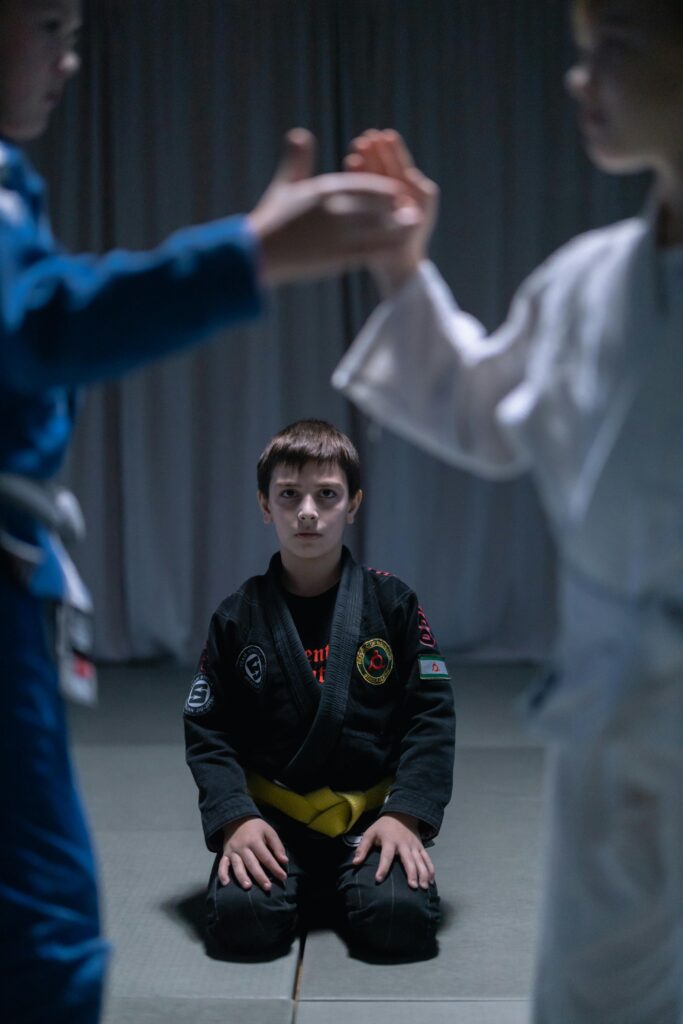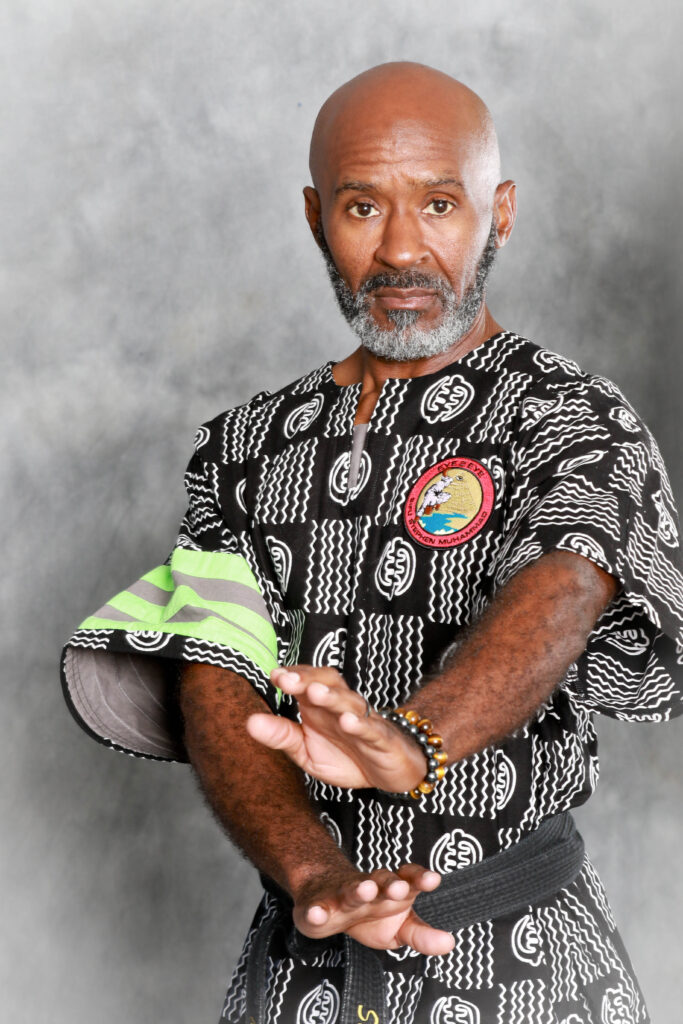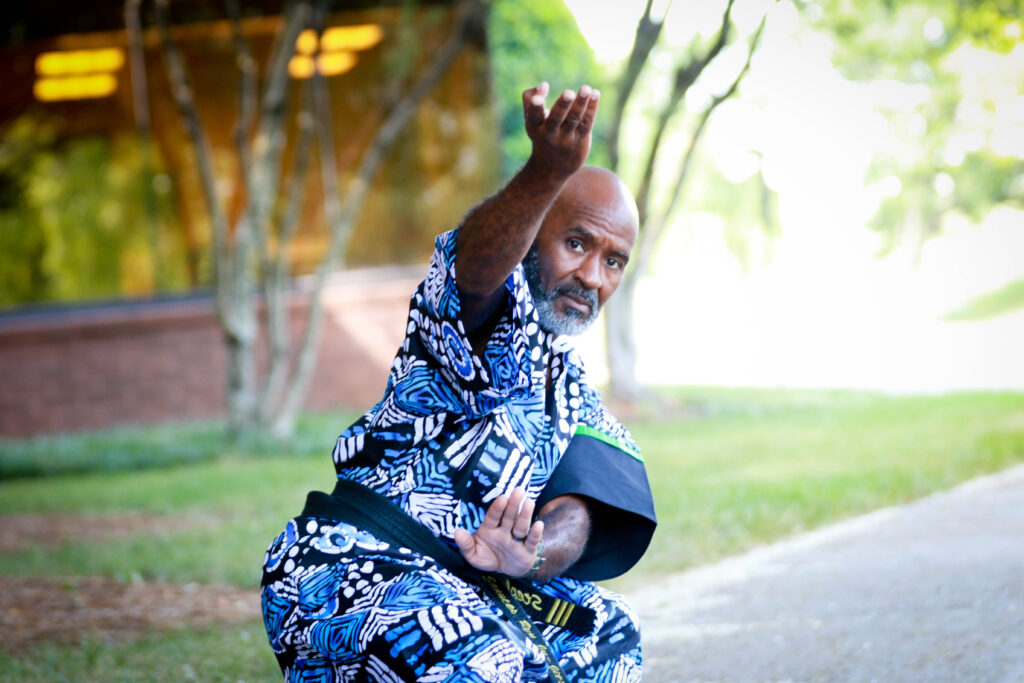Have you ever thought about how learning self-defense as a family can bring you closer together? I’ve seen it firsthand in our classes.
Whether it’s helping each other through tough techniques or celebrating when a family member earns a new belt, martial arts offers a unique way for families to bond.
It’s about more than just physical training—it’s about building trust, communication, and shared goals. And trust me, the benefits go way beyond the dojo.
Why More Families Are Choosing Martial Arts
These days, I see more and more families coming to our dojo, and it’s no surprise why. When you train together, you’re not just learning how to defend yourself—you’re also building lifelong skills that can strengthen your relationships at home.
Why Martial Arts Works for Everyone
One thing I love about martial arts is that it’s for everyone. Kids, teens, and parents can all train at their own pace, but they still come together as a family.
You might be working on different techniques or at different levels, but the shared experience creates a strong sense of connection.
Plus, everyone benefits from the structure, discipline, and focus that martial arts teaches.
I’ve had parents tell me how their kids have become more respectful and focused both at home and at school.
And it’s not just the kids—the parents find that training together helps them handle stress better and even improves their own self-confidence.
Whether you’re a busy professional looking to relieve stress or a parent wanting to instill discipline in your child, martial arts covers all bases.
Self-Defense: More Than Just Kicks and Punches
What sets martial arts apart from other family activities? While team sports or playing video games together can be fun, martial arts offers something deeper.
You’re not just exercising—you’re preparing for real-world situations and learning practical skills like how to stay calm under pressure.
This creates a different kind of bond that you can’t get from a typical family game night.
Setting Goals Together Builds Stronger Families
One of the most powerful things about martial arts is how it brings families together around shared goals. You’re not just working out—you’re striving for something as a team.
The Power of Earning Belts Together
I’ve seen how excited families get when one of their members earns a new belt. It’s a collective celebration, not just an individual achievement.
Parents are just as thrilled for their kids as the kids are for themselves. And when parents earn a new belt or master a tough technique, it’s an incredible example for their children to see.
Watching your mom or dad work hard and succeed? That’s inspiring.
Supporting Each Other Every Step of the Way
Training together also means holding each other accountable. Families that train together support each other not just in the dojo but in their day-to-day lives.
I’ve watched parents and kids encourage one another when the training gets tough or when someone’s feeling discouraged. It’s amazing to see how families grow closer as they push each other to reach their goals.
Trust and Communication: Key Benefits of Martial Arts for Families
If you want to build trust and improve communication at home, martial arts might be the answer you’re looking for.
I can’t count how many times I’ve seen families develop deeper levels of trust and communication simply by training together.
Partner Drills Foster Trust
In martial arts, many drills require you to work with a partner. These drills aren’t just about practicing moves—they’re about trusting your partner to help you get better.
Parents practicing with their kids, or siblings training together, learn to rely on each other in ways that go beyond the dojo. That trust carries over into daily life and strengthens the family bond.
Opening New Lines of Communication
What surprises me the most is how martial arts training often leads to better communication at home.
Parents and kids start talking about their progress in class, their challenges, and even their emotions.
This opens the door to conversations that might not have happened otherwise. It’s a chance for families to connect on a deeper level, both physically and emotionally.
Overcoming Challenges and Growing Stronger Together
Martial arts isn’t easy, and that’s what makes it so rewarding. As you work through challenges together, whether it’s mastering a new technique or pushing through a tough workout, you grow stronger—both individually and as a family.
Overcoming Physical and Mental Challenges
When you train in martial arts, you learn to push through discomfort and keep going when things get tough.
I’ve seen families rally around each other during those moments, whether it’s encouraging a child to keep practicing or a parent pushing through a challenging technique.
Working together through these challenges strengthens the bond between family members. You’re not just growing stronger physically; you’re also learning patience, resilience, and emotional control.
Leading by Example
Parents, your role in this process is crucial. When your kids see you working hard, pushing through obstacles, and staying committed, it sets a powerful example.
I’ve had parents tell me how proud their children were when they earned a new belt, and I’ve seen kids light up when they can help their parents master a technique.
This dynamic builds mutual respect, and it’s one of the most rewarding aspects of family training.
Creating Lifelong Memories
Some of the best memories I’ve seen families make happen outside the dojo. When families train together, those experiences turn into lasting memories that they carry with them long after class is over.
Competing and Celebrating Together
Whether it’s attending martial arts competitions as a family or celebrating a belt promotion, these shared experiences stick with you.
Families that I’ve worked with often come back from events like these with a deeper sense of connection and shared pride.
Competing or cheering each other on during tournaments builds a sense of unity that’s hard to find in other activities.
Practicing at Home
The learning doesn’t stop when you leave the dojo. Families often tell me that they practice together at home—whether it’s refining a technique or going over what they learned in class.
This keeps the momentum going and reinforces the bond that martial arts has built. It’s not uncommon to hear about families setting up a small training space in their living room or backyard, turning martial arts into a part of their everyday routine.
Martial Arts Teaches Life Skills for the Whole Family
Beyond the physical benefits, martial arts teaches important life skills that benefit everyone in the family.
Respect, Discipline, and Focus
One of the first things you learn in martial arts is respect—for your instructor, your fellow students, and yourself.
I’ve seen how this respect translates to better behavior at home, especially in kids. They become more disciplined, focused, and respectful, not just in class but in their daily lives.
And parents benefit, too. Training together teaches you patience and perseverance, which can help you manage stress at work and home.
Conflict Resolution and Confidence
Martial arts teaches families how to resolve conflicts peacefully. You learn how to stay calm, assess situations, and make smart decisions—skills that are invaluable both inside and outside the dojo.
I’ve seen firsthand how martial arts boosts confidence in both kids and parents. When you know you can defend yourself, you walk a little taller and feel more secure in everyday life.
This confidence helps create a more positive and supportive environment at home.
Bring Your Family Closer Together with Eye2Eye Combat’s Martial Arts Classes
Martial arts is more than just learning self-defense; it’s about creating shared experiences that strengthen family bonds in ways you might not expect.
Through setting goals, building trust, and overcoming challenges together, families can grow closer both inside and outside the dojo.
If you’re looking for a meaningful and active way to connect with your loved ones, martial arts is a fantastic choice.
At Eye2Eye Combat, we specialize in offering practical, real-world self-defense training designed to bring families closer while teaching lifelong skills.
Come see what we have to offer and take the first step toward creating stronger family connections—because there’s no better time than now to invest in your family’s future.
FAQs
1. What are the benefits of martial arts training for families?
Martial arts training brings families together in a way that’s both fun and productive. You’re not only getting fit, but you’re also learning important life skills like discipline, patience, and respect. I’ve seen families become more connected as they train, setting goals, and supporting each other. Plus, the shared experiences—whether it’s celebrating a belt promotion or mastering a new move—really strengthens family bonds.
2. What age groups can participate in family martial arts?
That’s the beauty of martial arts—it’s for everyone! Whether you’ve got a child just starting out or you’re an adult looking to stay active, martial arts accommodates all ages. I’ve worked with kids as young as 4 and seniors in their 60s. The great thing is, each family member can progress at their own pace, while still sharing the journey together.
3. How does martial arts training impact children?
Martial arts offers kids so much more than just physical activity. It helps them develop focus, self-discipline, and respect—qualities that translate into school and home life. I’ve watched kids grow more confident and better at managing their emotions through training. They learn how to set goals and achieve them, which boosts their self-esteem and problem-solving skills.
4. Can martial arts really help reduce stress for adults?
Absolutely! Martial arts is a fantastic stress-reliever. I see parents come in frazzled from their busy lives, and by the end of the class, they leave refreshed. The physical activity combined with focus helps clear your mind and gives you a great outlet for any pent-up stress. Plus, training with your family adds a fun, supportive dynamic that makes it even more rewarding.
5. How often should my family practice martial arts to see results?
Consistency is key. Ideally, attending classes twice a week helps maintain momentum and keeps everyone improving steadily. At home, even just 10-15 minutes of practice together can reinforce what you’ve learned and build stronger connections. From what I’ve seen, families that stick with a regular schedule see the best results, both physically and emotionally.
6. Can martial arts training really help with behavior issues in kids?
Definitely. Martial arts instills a sense of discipline and respect that positively impacts behavior. Kids learn to control their impulses and manage frustration better. I’ve seen significant improvements in children who previously struggled with behavioral challenges. It helps them develop patience, responsibility, and a sense of accomplishment, which naturally reduces issues like acting out.
7. How do family martial arts classes work with different skill levels?
Don’t worry if one family member is more advanced than another—classes are designed to accommodate all levels. Everyone can progress at their own pace. It’s actually great because family members can learn from each other. I often see parents and kids helping each other out, and the encouragement that comes from this dynamic makes the learning experience even more enjoyable.





